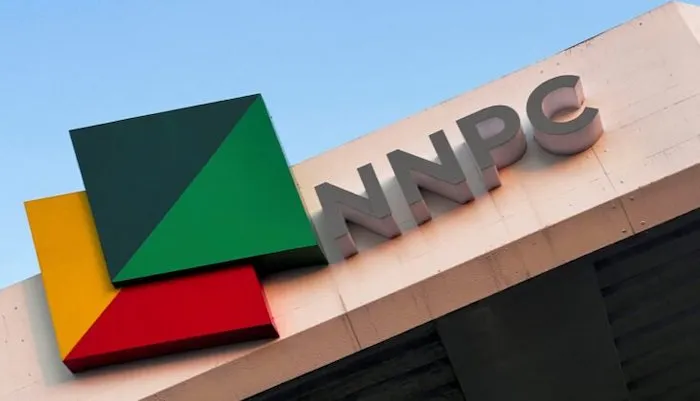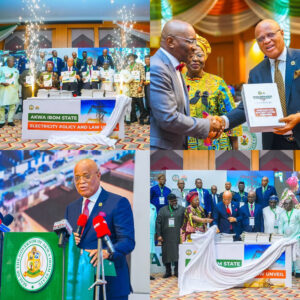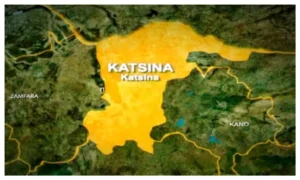
The Chairman of the Economic and Financial Crimes Commission (EFCC), Ola Olukoyede, has disclosed that a preliminary investigation into the Nigerian National Petroleum Company Limited (NNPC Ltd.) has revealed staggering levels of corruption, raising serious concerns over entrenched fiscal mismanagement within the organisation.
Speaking at the National Conference on Public Accounts and Fiscal Governance in Abuja—organised by the Public Accounts Committees of the Senate and House of Representatives—Olukoyede described the early findings of the Commission’s probe into NNPCL as “mind-boggling.”
“In the last three weeks, we commenced a comprehensive investigation into the extractive industry, focusing on oil and gas. What we’ve uncovered so far is deeply alarming,” he stated. “And this is just from preliminary examination. The deeper we go, the worse it gets.”
This development comes after President Bola Tinubu removed Mele Kyari as Group Chief Executive Officer of NNPCL in April, replacing him with Bashir Ojulari. Kyari had served in the role since 2019.
Olukoyede linked the widespread corruption in the oil and gas sector to Nigeria’s broader economic and security challenges, noting that systemic resource mismanagement fuels criminality and instability.
“There is a direct correlation between corruption and insecurity—whether it’s terrorism, banditry or kidnapping. Follow the money and you’ll find patterns of diversion and theft of public resources,” he said.
The EFCC boss renewed calls for the National Assembly to urgently pass the Unexplained Wealth Bill, which aims to criminalise the possession of assets disproportionate to one’s lawful income.
“I’ve been appealing for this legislation for over a year. It was rejected by the previous Assembly. We need this law to make individuals accountable for wealth that cannot be legally explained,” he stressed.
Illustrating the current legal loopholes, Olukoyede cited the case of a public servant with multiple high-end properties, saying, “An individual earns a modest civil service salary for two decades but owns five luxury properties in Maitama and Asokoro. Yet, we are required to prove a predicate offence before acting. It’s simply absurd.”
The EFCC, he said, is actively tracing illicit assets in various jurisdictions, including the United States, Turkey, and Iceland.
“Just last month, I visited several countries. An ambassador informed me of a Nigerian-owned estate in Iceland—of all places. It underscores the global footprint of stolen wealth,” he remarked.
Olukoyede, however, acknowledged the limitations of recovery efforts, stating that international resistance to repatriating stolen assets significantly hampers the Commission’s success.
“No matter the strength of our systems, we won’t recover more than half of what’s been stolen. Foreign custodians of these assets are often complicit,” he said. “By international law, any custodian of stolen assets is just as culpable as the thief.”
He also condemned the prevailing culture of impunity in Nigeria, where corrupt individuals continue to enjoy public celebration and political protection despite pending prosecutions.
“We present irrefutable evidence, trace the funds, and initiate legal proceedings—yet these individuals are still being glorified. It signals a disturbing lack of seriousness in our national resolve,” he lamented.
Highlighting institutional weaknesses, the EFCC Chairman noted that over 700 federal Ministries, Departments and Agencies (MDAs) operate without sufficient internal controls, making comprehensive oversight by the National Assembly nearly impossible.
“We cannot rely solely on post-event audits. There’s an urgent need for robust, internal compliance frameworks within the MDAs to prevent corruption before it festers,” he stated.
Olukoyede further revealed that EFCC analysis shows that 90 per cent of public funds looted annually are expatriated abroad, funds he believes could otherwise transform national development.
“These are resources that could fund education, healthcare, and infrastructure. Nigeria is too resource-rich to depend on external borrowing,” he declared.
He urged policymakers to close ranks and pursue genuine reforms across political and ethnic lines, warning that the nation may be at a critical inflexion point.
“If we deliver even 60 per cent of the capital budget between 2025 and 2026, we can revitalise small and medium-scale industries, develop infrastructure and reignite the economy,” he said.
“We must embrace transparency in revenue generation and ensure strict accountability in public spending.”
Olukoyede concluded with a stern appeal for public support and political will to confront entrenched interests.
“This is not just a bureaucratic campaign—it’s a battle for the soul of Nigeria,” he asserted.







![[PHOTOS] Arewa Offa, Mustapha Amidat Concludes Skill Acquisition, Exhibition Programme](https://newsbulletin.com.ng/wp-content/uploads/2025/09/IMG-20250920-WA0011-300x300.jpg)